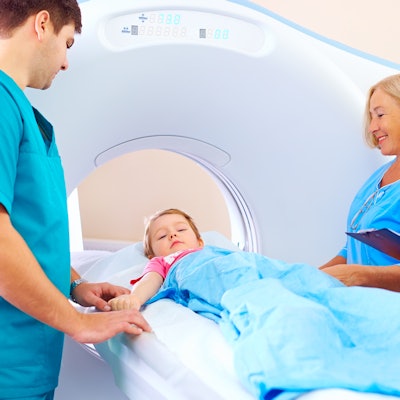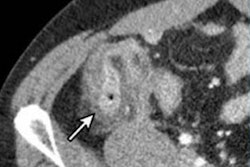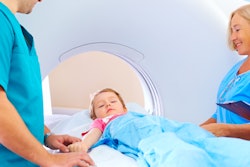
Children who have developmental difficulties undergo CT for suspected appendicitis more often than kids without cognitive challenges, according to research presented August 21 at the virtual American College of Surgeons (ACS) 2020 Quality and Safety conference.
The findings suggest that children with cognitive difficulties may be exposed to more radiation than is necessary, study lead author Dr. Raphael Parrado of the Medical University of South Carolina in Charleston said in a statement released by the ACS.
"The disease severity is the same in both groups, yet to make a diagnosis, we are using CT scans at a higher rate [in cognitively challenged children], which requires the use of radiation," he said.
Ultrasound is the recommended initial diagnostic modality for appendicitis, especially in children, noted study co-author Dr. Robert Cina, who is also with the Medical University of South Carolina.
But it can be more difficult to diagnose appendicitis in children with developmental difficulties, as they may not be able to communicate clearly about their symptoms. That's why clinicians may order CT instead.
"Our exploratory study suggests that physicians are deciding to use CT scans over ultrasound initially," he said in the ACS statement. "The reason may be that children who are neurologically impaired cannot tell us specifically about their symptoms, and as a result, they may be getting [CT imaging] more often to help make the diagnosis."
Using data from the ACS National Surgical Quality Improvement Program (NSQIP), Parrado's group assessed the effect of cognitive impairment on the diagnosis and treatment of appendicitis in children. The study included information from 16,986 patients under the age of 18 who had laparoscopic appendectomy in 2018; 293 of these patients had developmental and cognitive challenges.
Compared with their neurotypical counterparts, the children with cognitive challenges were younger (average age of 10 vs. 11) and had more CT scans (55% vs. 41%).
Parrado's team found no differences among the two groups of children when it came to postoperative complications. But kids with cognitive impairment did have longer postoperative hospital stays and higher readmission and postoperative emergency department visit rates.
| Differences among children with and without cognitive difficulties after appendectomy | ||
| Measure | Neurotypical children | Cognitively challenged children |
| Length of postoperative stay | 1 day | 2 days |
| Readmission rate | 3% | 8% |
| ED visit rate | 8% | 13% |
Better communication tools are needed to help cognitively impaired children with suspected appendicitis avoid CT, according to Parrado.
"We need to develop tailored communication tools and education for these children and their parents," he said.
There's definitely room for improvement when it comes to diagnosing appendicitis in this patient population, Cina concluded.
"We see that there is some inequity in how this fragile patient population is undergoing imaging," he said. "We need to make sure that we use the same processes in making our diagnoses as we would for others in regard to radiation."





















